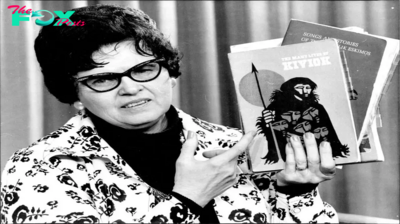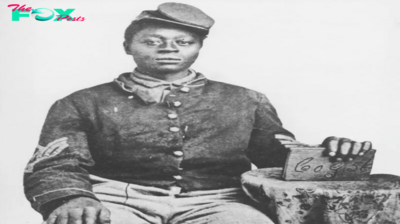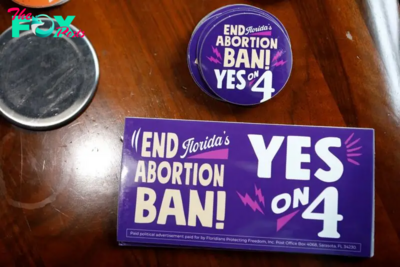History
How Celebrities Changed America’s Postpartum Depression Narrative
In 2019, rapper Cardi B opened up about the postpartum depression she experienced after giving birth to her first child. “I thought I was going to avoid it,” Cardi explained, noting that her doctor warned of the possibility. “But out of nowhere,” she said, “the world was heavy on my shoulders.” She recovered with support from her mother, and by taking time off from touring.
When she recently had her third child, Cardi’s postpartum health again made headlines. This time, she drew criticism for exercising eight days postpartum, and later for partying with her friends. She slammed critics, explaining that she was doing everything she could to avoid depression.
Cardi is far from the first celebrity mother to discuss her postpartum mental illness. In just the last few years, Chrissy Teigen, Serena Williams, Alanis Morissette, and others shared personal stories of dealing with the illness.
Their openness reflected how, for roughly 25 years, Celebrity mothers in the U.S. have shared such stories. These testimonials have educated Americans, raising awareness and decreasing stigma about postpartum mental illnesses. Importantly, though, they’ve also often included a conservative message about good motherhood, framing their victory over postpartum illness as enabling them to be the best mothers possible. This is a logical way of thinking about an illness that too often invites judgment about how someone is a “bad mother” rather than compassion for a person suffering from illness.
Yet, by framing their tales this way, these celebrities created a cultural expectation about acceptable ways of coping with postpartum illness that invite backlash toward women like Cardi, who refuse to perform selfless motherhood.
Before the 1990s, American celebrities rarely discussed their mental Health struggles publicly, including struggles around postpartum mental illness. A few British public figures admitted their postpartum suffering, including Princess Diana in 1995.
American celebrities, however, kept their postpartum illnesses private, often for good reason. A 1997 article in People flippantly explained that “[p]ostpartum depression isn’t an option for such Celebrity moms as Whitney Houston, Madonna, and supermodel Niki Taylor.” The women were simply too busy. That was not how postpartum depression worked, of course.
Read More: There’s Now An Oral Treatment for Postpartum Depression
But celebrity moms confronted a culture dominated by the “mommy wars,” which led the media to lavish praise on those women who appeared to balance demanding careers and high expectations of good mothering. There was no understanding for celebrity women who struggled with these expectations, forcing them into silence.
This changed in 1999, when singer and television star Marie Osmond discussed the postpartum depression that struck after the birth of her seventh child. She did interviews with TV Guide Magazine and Oprah Winfrey, where she described how the pressure to get back to work just a couple weeks after delivery shattered her. Osmond handed her infant off to a babysitter and drove 250 miles up the Pacific Coast Highway, seeking escape.
She reported that thousands of women emailed her after these interviews, thanking her for giving their suffering a name. Men called too, seeking help for their wives and daughters.
Osmond’s decision to speak out was groundbreaking. But the Mormon star’s discussions of postpartum depression also framed her illness and recovery in a conservative manner. She primarily discussed her suffering in terms of its impacts on her as a mother, not a person. When Osmond described her drive in a fog of depression, she explained that “part of the reason I got in the car was because I love my children so much. I love my kids…” It took feeling like she was not a good mother for Osmond to admit that she had a problem.
Osmond explained to Americans that the solution to her illness was to take time away from work to focus on her family and her faith. She prioritized family dinners and scripture reading, as well as immersing herself in preparing her oldest son for a missionary trip. Osmond emphasized how much work she was turning down to stay home with her children, including multiple Broadway shows.
Her message resonated, as she argued one could survive postpartum illness and still be an excellent mother. For many women, hearing this was critical because it gave them hope not only for their recovery from depression, but also the restoration of their status as “good mothers.”
Yet, there was a negative implication in how Osmond framed her tale: it reinforced a narrow definition of good motherhood built on a limited imagination of what a mothers’ wants and needs could be. It communicated that the central goal of recovery was not a woman’s own wellbeing but restoring her ability to mother.
In 2005, when actress Brooke Shields released her own memoir of postpartum depression she had very different politics and a different experience of motherhood. Yet, she reinforced the idea that addressing the illness was more about making a woman a better and happier mother and less about her own needs.
Shields desperately wanted a baby and struggled with miscarriage and fertility treatments. But having that baby was nothing like she expected. “Why was I crying more than my baby?” she asked. She emphasized in the memoir what a positive person she normally was, and how surprising motherhood was. “Where,” she asked, “was the bliss?”
Shields recounted her struggle to accept psychiatric help and psychiatric medication, though she eventually agreed to both. She paired these with a baby nurse who Traveled with Shields, and accommodations that allowed the actress to keep her baby with her as she returned to work.
Shields criticized the media romanticization of motherhood, but often used the very language and ideas that fueled it. The promotional material for her book included pictures of Shields lovingly holding her baby. She dedicated her book to the baby, who she said made “life worth living.” She described her regret at not appreciating early motherhood while in the throes of depression. Early postpartum love, she explained wistfully, was “so all-consuming and beautiful it’s a shame not to feel it longer.”
A year later, Shields proved her restoration when she had another child. This time, a magazine profile emphasized, the star did not have depression or need medication.
Shields’s confession of postpartum depression reached an enormous audience, mainly because actor Tom Cruise publicly criticized her use of anti-depressants. The public backlash against Cruise was swift and it shined a spotlight on postpartum depression and its treatments.
It was comforting, Shields said, when her doctor told her there was a chemical basis to her depression. This helped explain her non-maternal feelings. Without Paxil, she shared, “I wouldn't have become the loving parent I am today.”
Read More: The Heart-Shattering Feeling of Going Back to Work After Having a Baby
Shields’ public story, and her later advocacy work, helped countless Americans learn about postpartum depression and helped destigmatize psychiatric medication use. Her approach to the topic challenged the popularly held view that women suffering from postpartum depression were bad mothers, some of whom were so bad it warranted taking their children away.
Yet, Shields’ story of recovery framed her journey not around her own wellness, but in terms of becoming a “loving parent.” That reinforced the idea that postpartum depression fundamentally was an illness that threatened a woman’s capacity to mother because it centered loving motherhood as the key victory of recovery. Like Osmond, therefore, Shields helped create a hierarchy in which a mother’s wants and needs would always be secondary.
More recent Celebrity narratives of postpartum depression are subtler than those of the early 2000s, but often reproduce aspects of this script. This April, actress Halle Bailey offered a moving description of her postpartum illness, but quickly added that her new son “… is perfect. He is beautiful… When I look at him, I cry because of how special he is.”

Countless celebrity women have authentically described their experiences, helping to educate and raise awareness about postpartum depression in a way little else could. Yet, these discussions prioritized women’s motherhood over their personhood, and emphasized maternal self-sacrifice. This frame his created a culture in which judgement awaits the celebrity mother who behaves differently—like Cardi B.
This helps explain both the backlash she has experienced, and also the damage that the public’s limited understanding of postpartum depression can have. Cultural expectations of selfless motherhood for women struggling with their mental health ultimately discourage women from determining and pursuing their own needs on their own terms. It’s crucial to recognize that recovering from postpartum depression is different for each woman, and there must be cultural space for different varieties of healing and rebuilding.
Rachel Louise Moran is the author of Blue: A History of Postpartum Depression in America (Chicago, 2024). She is associate professor of history at the University of North Texas.
Made by History takes readers beyond the headlines with articles written and edited by professional historians. Learn more about Made by History at TIME here. Opinions expressed do not necessarily reflect the views of TIME editors.
-

 History1w ago
History1w agoThe Kamala Harris ‘Opportunity Agenda for Black Men’ Might Be Good Politics, But History Reveals It Has Flaws
-
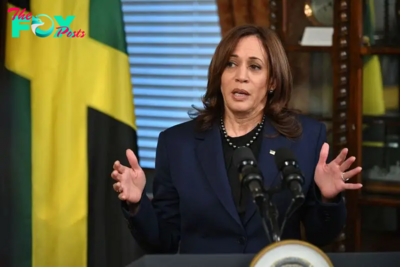
 History2w ago
History2w agoLegacies of Slavery Across the Americas Still Shape Our Politics
-

 History2w ago
History2w agoKamala Harris Is Dressing for the Presidency
-
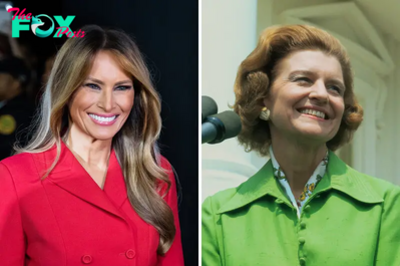
 History2w ago
History2w agoWhat Melania Trump’s Decision to Speak Out on Abortion Says About the GOP
-

 History2w ago
History2w agoThe Long Global History of Ghosts
-

 History2w ago
History2w agoAmerica’s Forgotten Occult Origins
-

 History2w ago
History2w agoHistory Suggests That Trump’s Approach to Putin Is All Wrong
-

 History2w ago
History2w agoThe Tariff History Donald Trump Is Overlooking
